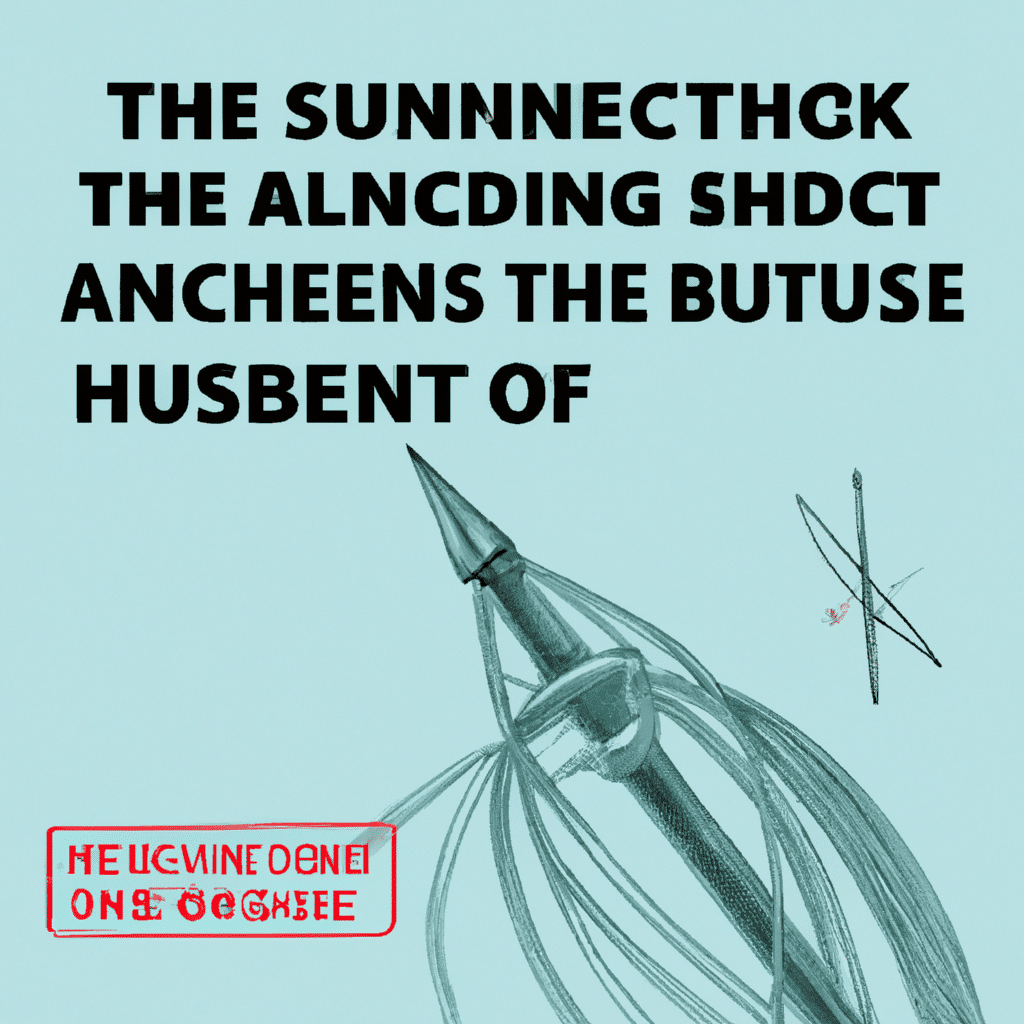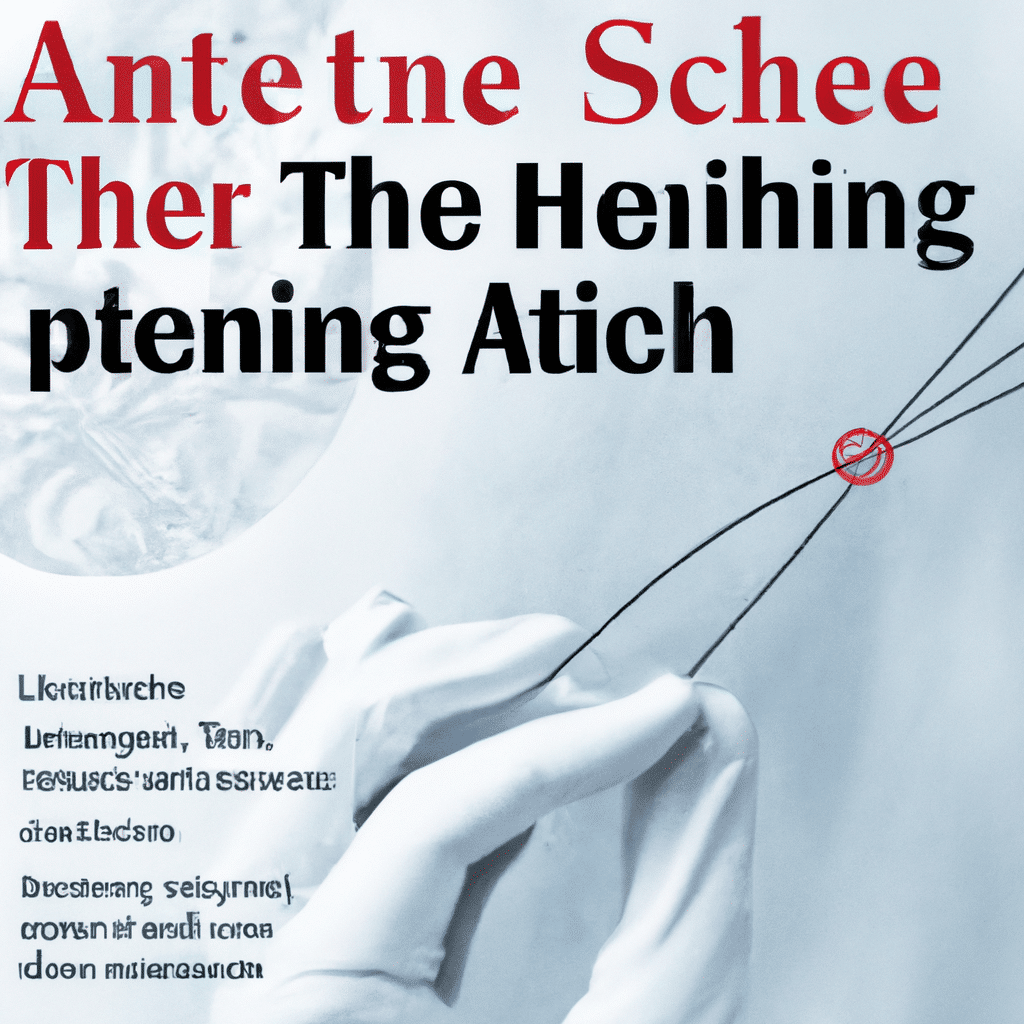
In “The Science behind Acupuncture: Unveiling its Potential Benefits,” we explore the intriguing realm of alternative therapies. From acupuncture to homeopathy and Ayurveda, these treatments often operate outside the realm of mainstream Western medicine. However, there is growing scientific evidence suggesting that acupuncture may offer a range of potential benefits. Join us as we delve into the fascinating science behind acupuncture and uncover its potential to enhance our well-being.
The Science behind Acupuncture: Unveiling its Potential Benefits
acupuncture is an ancient form of alternative therapy that has been practiced for thousands of years in Eastern cultures. In recent years, it has gained popularity in the Western world as well, with more people turning to this traditional treatment for various health concerns. But what exactly is acupuncture, and how does it work? In this comprehensive article, we will delve into the science behind acupuncture and explore its potential benefits.

Understanding the Basics of Acupuncture
Acupuncture is a therapeutic technique that involves the insertion of thin needles into specific points on the body. According to traditional Chinese medicine, these points correspond to channels or meridians through which the body’s vital energy, known as Qi, flows. By stimulating these points, balance and harmony are restored to the body, promoting optimal health and well-being.
Historical Origins of Acupuncture
The origins of acupuncture can be traced back to ancient China, where it was developed over 2,500 years ago. The Chinese believed that health was a result of the balance between Yin and Yang energies in the body. When these energies became imbalanced, health problems would arise. Acupuncture was, and still is, seen as a way to restore this balance and promote overall health.
How Acupuncture Works: Key Concepts
According to the principles of traditional Chinese medicine, acupuncture works by stimulating the body’s meridians, which in turn promotes the flow of Qi and restores balance. From a Western perspective, acupuncture is believed to stimulate the release of endorphins, the body’s natural pain-relieving chemicals, and promote the release of other neurotransmitters and hormones that aid in healing and overall well-being.
Different Types of Acupuncture Techniques
Acupuncture encompasses a variety of techniques that can be tailored to suit individual needs and preferences. Some commonly used techniques include:
-
Traditional Chinese Acupuncture: This form of acupuncture follows the principles and techniques of traditional Chinese medicine. It involves the insertion of fine needles at specific points along the meridians to restore balance and promote health.
-
Electroacupuncture: In this technique, a small electric current is passed through the needles to enhance the therapeutic effects of acupuncture. It is often used for musculoskeletal conditions and pain management.
-
Auricular Acupuncture: Also known as ear acupuncture, this technique involves the insertion of needles into specific points on the ear. It is commonly used for addiction treatment, stress reduction, and pain management.
-
Scalp Acupuncture: This technique involves the insertion of needles into specific areas of the scalp to treat various neurological and musculoskeletal conditions.
The Role of Acupuncture Points
Acupuncture points are specific locations on the body that have been identified and mapped out by traditional Chinese medicine. These points are believed to correspond to specific organs or systems of the body. By stimulating these points, acupuncture aims to restore balance and promote healing in the corresponding areas.
Acupuncture: Eastern and Western Perspectives
In Eastern cultures, acupuncture has long been considered a fundamental aspect of healthcare. It is often used as a preventative measure and is viewed as a holistic treatment that can address a wide range of health concerns. In the Western world, acupuncture is often seen as a complementary therapy that can be used alongside conventional medical treatments. Many Western medical practitioners now recognize the potential benefits of acupuncture and may even refer patients to acupuncturists for additional support.
Scientific Evidence: Does Acupuncture Really Work?
While the traditional principles of acupuncture may not align with Western scientific frameworks, numerous studies have been conducted to evaluate its effectiveness. The results are promising, indicating that acupuncture may have a positive impact on various health conditions. However, further research is still needed to understand the underlying mechanisms and to determine the most effective applications of acupuncture.
Acupuncture for Pain Management
One of the most well-known uses of acupuncture is for pain management. Acupuncture has been shown to be effective in relieving pain associated with conditions such as arthritis, migraines, and back pain. By stimulating specific points on the body, acupuncture can help reduce inflammation, improve blood flow, and promote the release of endorphins, providing natural pain relief.

Acupuncture for Stress and Anxiety
In our fast-paced world, stress and anxiety have become increasingly prevalent. Acupuncture offers a natural and holistic approach to managing these conditions. By stimulating specific points on the body, acupuncture can help regulate the nervous system, reduce stress hormones, and promote relaxation. Many individuals find acupuncture sessions to be soothing and calming, providing them with a much-needed respite from the rigors of daily life.
Acupuncture for Digestive Health
Digestive issues can greatly impact our quality of life. Acupuncture can be a valuable tool in managing conditions such as irritable bowel syndrome, acid reflux, and constipation. By stimulating the appropriate acupuncture points, digestive function can be improved, inflammation reduced, and overall gut health restored.
Acupuncture for Respiratory Issues
Acupuncture has been found to be beneficial for individuals with respiratory conditions such as asthma, allergies, and chronic bronchitis. By targeting specific acupuncture points, acupuncture can help strengthen the immune system, reduce inflammation, and improve respiratory function, leading to better breathing and overall well-being.
Acupuncture and Women’s Health
Acupuncture has long been used to support women’s health throughout the various stages of life. From menstrual irregularities and fertility concerns to menopause symptoms, acupuncture offers a safe and natural approach to promoting hormonal balance and overall women’s health.
Acupuncture for Fertility and Pregnancy
Many couples struggling with fertility issues have turned to acupuncture as a complementary therapy. Acupuncture can help regulate menstrual cycles, improve hormone balance, and increase blood flow to the reproductive organs. Additionally, acupuncture is often used to support the health and well-being of pregnant women, helping to alleviate common discomforts and promote a healthy pregnancy.
Acupuncture for Mental Health
The field of mental health has also embraced acupuncture as a supportive therapy. Acupuncture has shown promising results in reducing symptoms of depression, anxiety, and stress. By promoting the release of endorphins and regulating the nervous system, acupuncture can help individuals achieve a greater sense of calm and emotional well-being.
Acupuncture and Weight Management
While acupuncture alone is not a magic solution for weight loss, it can be a valuable tool for those looking to manage their weight. Acupuncture can help regulate appetite, improve digestion, and reduce cravings, making it easier to maintain a healthy weight and make positive lifestyle choices.
Safety and Potential Side Effects
When performed by a trained and licensed acupuncturist, acupuncture is generally considered safe with minimal side effects. However, it is important to disclose any medical conditions or medications to ensure a safe and effective treatment. Rare side effects may include minor bruising, soreness, or dizziness.
Finding an Acupuncturist: Tips and Considerations
When seeking acupuncture treatment, it is essential to find a qualified and experienced acupuncturist. Consider asking for recommendations from trusted healthcare professionals or friends who have had positive experiences with acupuncture. It is also important to ensure that the acupuncturist is licensed and follows proper hygiene and safety protocols.
Conclusion
Acupuncture is a time-tested therapy that continues to gain recognition for its potential benefits. While the exact mechanisms may still be a topic of debate, there is scientific evidence to support its use in various health conditions. Whether seeking pain relief, stress management, or support for overall well-being, acupuncture offers a holistic and natural approach to health that should not be overlooked.
